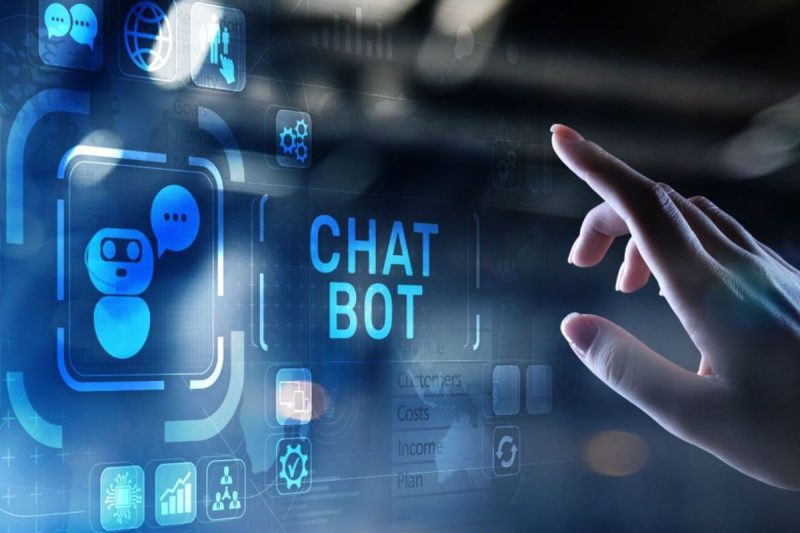Amazon Web Services has unveiled recent upgrades to two of its home-grown silicon chips.
Meanwhile, Sam Altman has officially resumed his post as OpenAI CEO and has named new board members to replace Helen Toner, Tasha McCauley and former Chairman Ilya Sutskever.
However, his ousting may have resulted in setbacks for OpenAI’s plans to launch a virtual store for user-made GPTs.
For these stories and more, keep reading to learn about the latest news in tech.
1. Sam Altman officially resumes position at OpenAI
Sam Altman officially returned to his post as CEO of OpenAI this week after a very brief and controversial dismissal. In a heartfelt message delivered to his company and posted on the company’s website, Altman expressed his gratitude for his staff and their hard work, as well as his excitement for the future of OpenAI, which may include co-founder Ilya Sutskever in some capacity.
Altman also named the new board members who would replace Sutskever, Helen Toner and Tasha McCauley. Former Salesforce (NYSE: CRM ) CEO Bret Taylor is the new chairman of the board; Larry Summers, who previously served as US Secretary of the Treasury, and Adam D’Angelo, the CEO of Quora, will act as board members.
2. OpenAI delays launch of custom GPT store
According to an internal memo reported on by Reuters on Friday, OpenAI has announced that they will be delaying the launch of its custom GPT store until early 2024. The memo states that the company is continuing to make improvements to the GPTs, and the firing and subsequent re-hiring of founder Sam Altman may have been a factor, but details for the decision have not yet been released to the public.
The company behind the explosive ChatGPT announced on November 6 that they would be rolling out versions of the software that users can custom-build for their specific needs and then share with other users. Tasks these custom GPTs could accomplish included teaching math and designing stickers. Plans were also in place to launch a GPT store at the end of November, where verified builders could list their GPTs.
As of press time, no alternative launch date has been provided by OpenAI.
3. Dell partners with AI startup Imbue
Dell (NYSE: DELL ) struck a deal with AI start-up Imbue worth US$150 million on Wednesday. The two companies have partnered up to build a high-performance computing cluster using Dell PowerEdge XE9680 servers with NVIDIA H100 Tensor Core GPUs. The system is already being used to train Imbue’s foundational model of an AI personal assistant that has advanced reasoning capabilities.
The terms of the deal allow Imbue to design and redesign its model thanks to Dell’s customizable hardware. Cloud providers, such as Google (NASDAQ: GOOGL ) or Amazon (NASDAQ: AMZN ), can limit start-ups down the road. In an interview with Bloomberg , Imbue co-founder Josh Albrecht said that was a major factor in their decision to partner with Dell. “We don’t want to be locked into a computing provider. (Using a cloud provider) would make it much harder for the software side to move off of that in the future. This allows us to be able to remain independent.”
4. Amazon unveils new and improved silicon chips
Amazon Web Services released the latest version of its custom-made computer chips, the Graviton4 and Trainium2 on Wednesday. According to a press release on the company’s website, “The next generation of…AWS-designed chip families (deliver) advancements in price performance and energy efficiency for a broad range of customer workloads, including machine learning training and generative artificial intelligence applications.
The Graviton4 comes with 75 percent more memory bandwidth than its predecessor, the Graviton3, as well as 50 percent more cores and can deliver a computing performance up to 30 percent faster and more efficient. The Trainium2 chip, designed to train AI models, rivals the capabilities of NVIDIA’s (NASDAQ: NVDA ) accelerator chips, delivering AI training up to four times faster than the current model.
5. Biden issues guidelines for electric vehicle tax credits
On Friday, US President Joe Biden issued guidelines for eligible electric vehicle tax credits of up to US$7,500. In a press release , the US Department of the Treasury stated that, from 2024, vehicles eligible for the credit may not contain any parts manufactured or assembled by a foreign entity of concern (FEOC). Beginning in 2025, EVs may not contain critical minerals extracted, processed or recycled by a FEOC. For the time being, batteries with traces of the minerals are exempt from the rule.
The issuance is in line with the Biden administration’s Investing in America agenda, an initiative that aims to revitalize the American economy and create jobs.
Securities Disclosure: I, Meagen Seatter, hold no direct investment interest in any company mentioned in this article.

